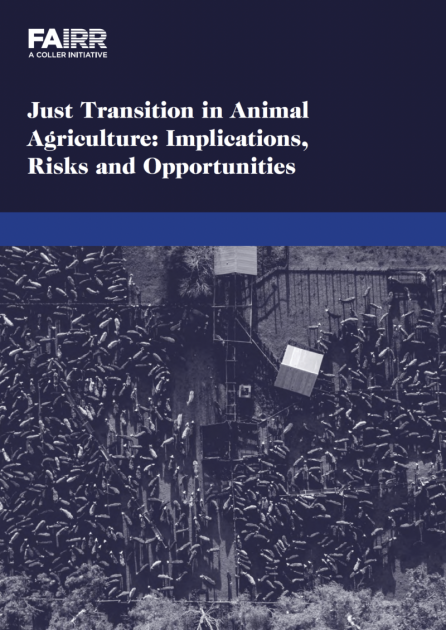Executive Summary
Agricultural emissions now account for one-third of greenhouse gas (GHG) emissions, and global food systems have been recognised as the “primary driver of biodiversity loss”, responsible for nearly 90% of global deforestation. These impacts have led to efforts made by policymakers, investors and companies to transition the sector to a climate-aligned and nature-positive food system. As the population continues to grow and becomes increasingly affluent, demand for protein is also likely to grow in geographies including South-East Asia, and Africa, and there will be an increasing need to feed the population whilst staying within our planetary boundaries.
A just transition for agriculture so far lacks the in-depth analysis already published on energy transitions, including moving away from reliance on coal, and thus this working paper attempts to bridge that gap in the literature. This paper puts forward recommendations for policymakers and development finance institutions (DFIs), investors and companies on the types of policy mechanisms that could facilitate a just transition for farmers and agricultural workers towards a more sustainable food system. Although no silver bullet exists for the sector, with growing pressure on farmers and agricultural workers to feed a rising global population, a just transition for food systems must be on the agenda for investors and policymakers alike.
Focusing on a just transition for intensive animal agriculture production is relevant to investors, policymakers and DFIs because of the urgency with which a transition away from unsustainable agricultural practices is needed to meet climate and nature goals. Creating a fairer and more equitable food system for people and our planet must be a priority. Diversification away from a reliance on intensive animal agriculture towards more sustainable practices like smallholder farming, agroecological production and regenerative agriculture, as well as diversification into alternative proteins, are likely to be key components of the discussion.
A just transition in agriculture to overhaul our current food system will require substantial public and private investment. A just transition is a systemic, whole economy approach to sustainability, where the focus is placed on maximising the social benefits of the transition whilst attempting to mitigate social risks and empower those affected by change. It bridges the current system and pushes towards a “future where all jobs are decent, poverty is eradicated, and communities are thriving and resilient”.
As identified by the IPCC, a transition towards healthy and sustainable diets plays an important role in reducing emissions and creates new opportunities for job creation and incomes. In the energy sector, where some workers felt left behind, this can create social conflict, and so a transition for agriculture must learn from these past mistakes and alleviate the socioeconomic impacts of the transition.
Report Highlights
The 2015 Paris Climate Agreement recognises a need for a “just transition of the workforce, and the creation of decent work and quality jobs, including in agriculture, forestry, and other land use (AFOLU)”.
Transition conversations for the global food sector are urgently needed as this sector is responsible for around ⅓ of greenhouse gas emissions, as well being heavily impacted by the impacts of climate change.
The agricultural sector is a major global employer: more than two-thirds of the population in low-income countries work in agriculture, and around 5% of the population in high-income countries.
Animal farming occupies 78% of agricultural land globally, and the implications of intensive animal agriculture on our planet’s biodiversity are increasingly apparent, with agricultural land conversion recognised as the biggest driver of habitat loss.
Changing consumer demand is already having huge impacts on the sector. The US dairy industry is facing rising pressure as demand for plant-based milk increases. Demand currently makes up nearly 20% of all retail milk sales in the US, with around $4 billion in sales.

